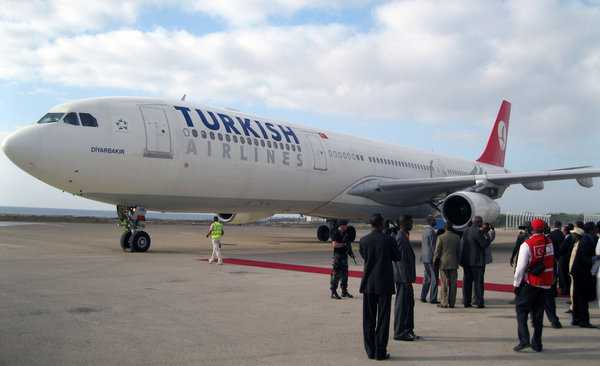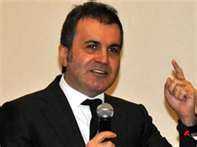By Soner Cagaptay
March 6, 2013, 4:21 p.m.

Turkey is rising. In the last decade, the country’s economy has nearly trebled in size. Just 10 years ago, the average Turk had one-fifth the income of the average European. Today, Turks are only 30% less wealthy than European Union citizens. Given Europe’s financial doldrums, Turkey could catch up in the coming years and realize its 4-centuries-old dream of becoming a great power again.
But on the political front, Turkey is still a mixed bag. The nation is vacillating between becoming a global power or taking a parochial path under the governing Justice and Development Party’s (AKP) straitjacket of conservatism.
In years past, following the vision of its founder, Kemal Ataturk, Turkey exercised a strict version of secularism, mandating no religion in government. But lately, with the rise of the AKP, the firewall between politics and religion has become porous, with Turkish society flooded by government-led social conservatism. For example, the AKP recently passed legislation mandating religious education in public schools starting at fourth grade.
Or take the case of Turkish Airlines, a publicly owned company whose ascent exemplifies the new and economically rising Turkey. The airline flies to more than 200 destinations from its hub in Istanbul, up from about 75 in 2002. It twice has been voted Europe’s best airline. As a frequent flier on the carrier for decades, I remember when the flights were full of Turkish families and businessmen. Today, they are full of Europeans flying to Istanbul for connections across Turkey and Eurasia.
But even as Turkey’s supercharged economy propels the airline forward, parochial conservatism is pulling it in another direction. The company recently announced that it will ban alcohol from most of its domestic flights. If Turkish Airlines aspires to be a global brand, it needs to stop acting like the Muslim airline for a Muslim country.
The same can be said for Turkey as a rising power. Turkey needs to convert its potential into actual political weight. To this end, Ankara has to forge a truly global identity that transcends its affinities with co-religionists. In recent years, with civil war in Syria next door and competition against Iran in Iraq heating up, Ankara has moved closer to the United States and NATO. But Turkey is still tempted by the desire to cast itself as purely a Muslim power that has sway over the Muslim Middle East.
Turkey’s economic rise over the last decade should have taught its leaders that turning parochial is not a recipe for success. Its economic miracle has been driven by a blend of political stability, European and American money, and access to emerging markets and Muslim-majority economies. Only by striking this balance has Turkey been able to accomplish what none of its Muslim-majority neighbors has managed so far. And if Ankara can now repeat this pattern in politics — embracing its Muslim identity while providing political stability in its neighborhood and maintaining strong ties with Europe and the United States — this would truly fulfill the promise of an ascendant Turkey.
Turkey’s regional ambitions also would be best served by restoring this delicate blend of Western affiliations and Muslim identity. For its Muslim-majority neighbors, Turkey’s value lies in the fact that it has been able to bring something more to the table while maintaining its Muslim character. Take, for instance, how Saudi Arabia viewed the Turkey of the late 2000s, before it struck this balance: a nation isolated from NATO and Washington that had begun to resemble a wealthy Yemen — a large, prosperous Muslim nation that did little to enhance regional security.
Turkey can regain its uniqueness, but only if it revitalizes its ties with the West. Access to NATO hardware — which proved crucial with the recent NATO Patriot missile deployment in southern Turkey against Syria — and close ties with Washington endow Ankara with unique and respected regional assets.
From Washington’s perspective, Turkey is at its best when it can engage in dialogue with all sides in the region’s intractable conflicts. This is why Ankara would be well served to rebuild ties with Israel, so it can talk to both Israelis and Palestinians, as well as engage with the diverse elements of post-revolutionary Libya, Tunisia and Egypt. Ankara also needs to build ties with all groups in the Syrian opposition, not just the Muslim Brotherhood, if it wants to be a player in a post-Assad Syria.
To complete its rise, Turkey needs to nurture a liberal political culture at home, ending the debilitating culture wars between the AKP’s supporters and opponents.
This question has even greater currency now that the country is considering its first civilian constitution. If this new charter outlines the groundwork of true liberal democracy — for instance, providing for freedom of religion as well as freedom from religion — AKP supporters and opponents alike could feel welcome.
A new liberal social contract would allow Turkey to enter the ranks of globally respected powers, as well as focus its energy overseas rather than being bogged down in domestic polarization.
Soner Cagaptay, a fellow at the Washington Institute for Near East Policy, is the author of the forthcoming “Turkey Rising: 21st Century’s First Muslim Power.” Follow him on Twitter @sonercagaptay
Copyright © 2013, Los Angeles Times
via Turkey can be a global power, not just a Muslim power – latimes.com.





 In February, the navy awarded Lockheed Martin a contract to upgrade four Perry-class and the first two Meko 200 IIA frigates. Requirements include installation of the Mk 41 vertical launching system (VLS), which will load Mk 25 quad-pack cells for Raytheon’s ESSM antiair/antimissile system, replacing the Standard SM-1 (supported by Raytheon) on the Perry. The Perry retrofit also involves a combat management system (CMS) based on the Genesis, developed by local manufacturer Havelsan with Raytheon (and initially aimed at the Knox frigates), which is to be installed on new Milgem corvettes. All Perry-class ships will have the Genesis CMS, though not all can receive the Mk 41. Two Knox-class frigates will be retired.
In February, the navy awarded Lockheed Martin a contract to upgrade four Perry-class and the first two Meko 200 IIA frigates. Requirements include installation of the Mk 41 vertical launching system (VLS), which will load Mk 25 quad-pack cells for Raytheon’s ESSM antiair/antimissile system, replacing the Standard SM-1 (supported by Raytheon) on the Perry. The Perry retrofit also involves a combat management system (CMS) based on the Genesis, developed by local manufacturer Havelsan with Raytheon (and initially aimed at the Knox frigates), which is to be installed on new Milgem corvettes. All Perry-class ships will have the Genesis CMS, though not all can receive the Mk 41. Two Knox-class frigates will be retired.